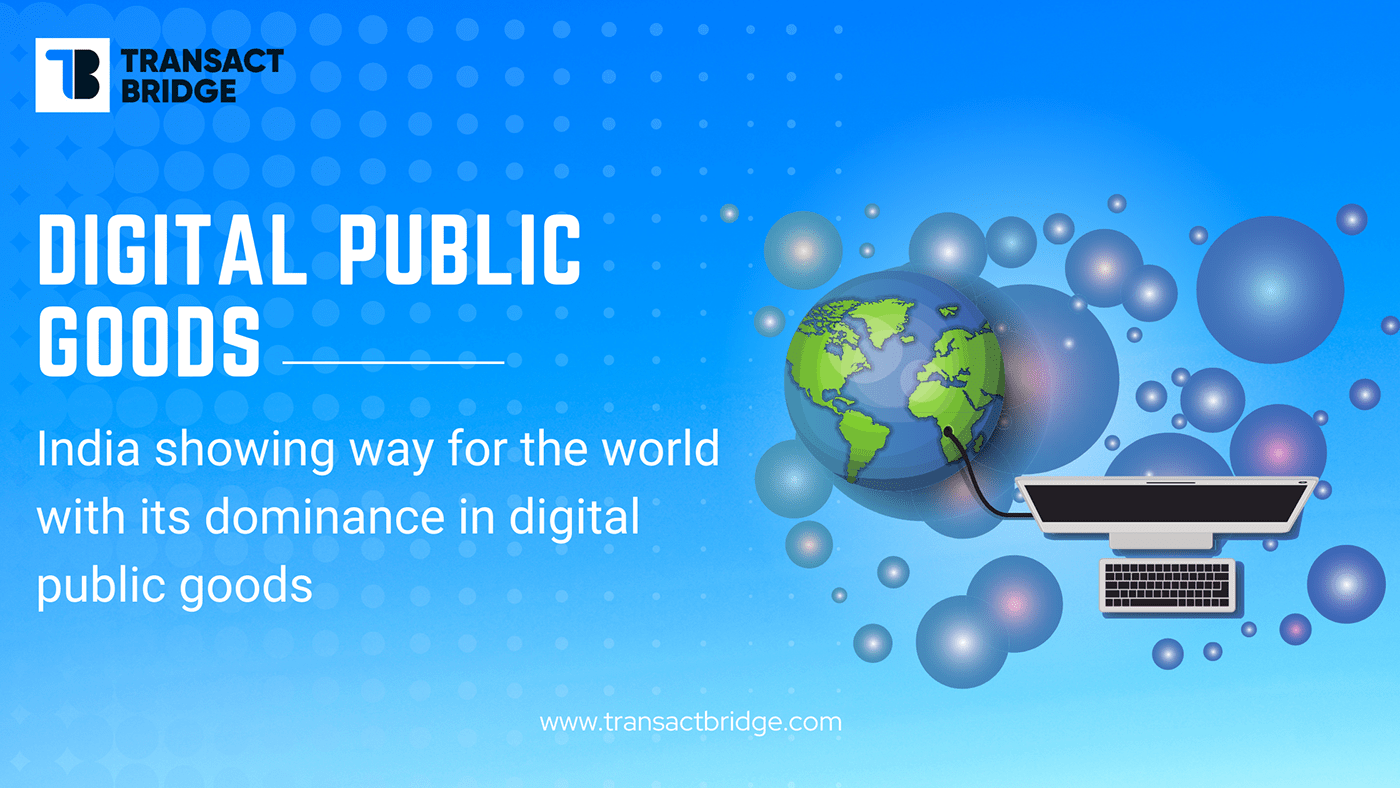India showing way for the world with its dominance in digital public goods
The idea of digital public goods has significantly increased in importance in a time when technology has assimilated into every aspect of our life. These products are platforms, data, and software that are freely accessible to everyone and empower everyone—individuals, groups of people, and entire countries. While many nations are making substantial progress in the digital sphere, India has stood out as a pioneer, demonstrating its supremacy in digital public goods and acting as a lighthouse for the rest of the globe.
Digital public goods are often free platforms that support a country's digital growth. They might take the shape of software, data sets, AI models, standards, or content. Digital public goods include Addhar, UPI and DigiLocker, eBooks, podcasts, and other tech-driven citizen-centric services. India Stack is a set of APIs that enables governments, businesses, start-ups, and developers to utilise a unique digital infrastructure to solve India's problems and to achieve a presence-less, paperless, and cashless service delivery model.
Transact Bridge invites you to India as your trusted reseller partner
Transact Bridge helps software product companies expand their business in India by working as a worldwide reseller of software subscriptions. Additionally, it seeks to expand your company into India and specialises in localising for developing markets. This implies that Transact Bridge is fully dedicated to offering a flexible, all-inclusive solution that expands reach in developing nations and creates new income streams. Your increased success rate and customer retention speak for themselves as the selling becomes simple.
Utilising Open Source's Potential
The strength of India's digital public goods can be attached to its unshakable faith in the potential of open-source software. Software that is open-source permits collaboration, personalization, and innovation by making its source code available to the public for free. The National Informatics Centre (NIC), one of the government of India's projects, has adopted open-source software, allowing for the creation and distribution of a wide range of digital public goods.
The Aadhaar system, a biometric-based unique identification programme that has transformed identity management in India, is one famous example. Aadhaar, which was developed using open-source technology, has given more than 1.2 billion citizens a portable, secure digital identity that has facilitated access to numerous government services and financial inclusion. The success of Aadhaar has encouraged other countries to investigate comparable identity management strategies, demonstrating India's leadership in this field.
Education Transformation using Digital Platforms
In the area of education, India's supremacy in digital public goods is further demonstrated. With such a large and diversified population, the nation has always struggled to provide access to high-quality education. However, India has tapped into the potential of technology to democratise education through the National Programme on Technology Enhanced Learning (NPTEL) and SWAYAM platforms.
A wide range of disciplines are covered by the online courses and study materials made available by NPTEL from prominent Indian institutions. These tools are freely available to students anywhere, enabling people to learn from the convenience of their own homes. Similar to this, SWAYAM (Study Webs of Active-Learning for Young Aspiring Minds) offers interactive modules and Massive Open Online Courses (MOOCs) in a variety of subject areas, reaching millions of students and bridging the educational gap.
Digital Health Initiatives
In the area of healthcare, India's digital public goods projects have achieved great progress. The National Health Portal (NHP) is a comprehensive online platform that offers trustworthy resources, services, and information on healthcare. It serves as a knowledge base, providing access to telemedicine services, medical literature, and health recommendations, improving healthcare accessibility and awareness across the nation.
Additionally, programmes like the CoWIN (COVID Vaccine Intelligence Network) platform have been essential to India's campaign to vaccinate against COVID-19. In order to provide an effective and fair delivery of vaccinations to millions of residents, CoWIN offers a smooth and transparent approach for registration, scheduling, and monitoring of immunisation. Due to the platform's effectiveness, numerous nations are looking at its features in order to boost their own vaccination efforts.
Global Cooperation and Sharing
Beyond its own boundaries, India has a leading position in digital public goods. In an effort to further international progress, the nation actively engages with international organisations. One noteworthy instance is the partnership between India and the United Nations Development Programme (UNDP) in the creation of the India-UN Development Partnership Fund. In order to advance sustainable development, capacity building, and inclusive growth, this fund supports several global projects. It does this through utilising India's digital strengths.
Additionally, India's dedication to the open-source movement has prompted international cooperation, promoting the creation and uptake of digital public goods on a global scale. The nation actively participates in open-source initiatives including the development of the Linux kernel, OpenStack, and the Free and Open Source Software for Geospatial (FOSS4G) community, which benefits the worldwide digital economy.
Conclusion
India's supremacy in digital public goods exemplifies how technology can be transformed when used for the greater benefit. India has made a name for itself as a worldwide leader in industries including identity management, education, healthcare, and international cooperation because of its emphasis on open-source software. India has democratised access to necessary services, information, and opportunities by making these digital public goods publicly available. This has had a profound effect on its inhabitants and served as an inspiration to other countries across the world.
India's experience stands as a beacon for the rest of the globe as it continues to undergo a digital revolution, highlighting the enormous potential of digital public goods to empower people, close disparities, and promote equitable growth. The international community can learn important lessons from India's experience and work together to design a future in which digital public goods are available to everyone, resulting in a more just and prosperous world.

